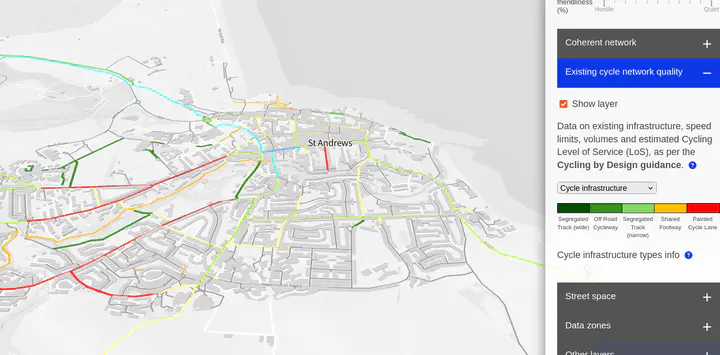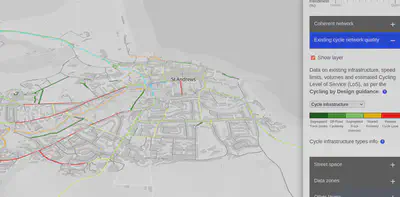
Abstract
Transport planning has always been a complex and multi-disciplinary enterprise requiring wide-ranging skills and methods. Like many fields of research exposed to the data revolution, it is also fast-moving, meaning that it’s hard to know how to keep the work future-proof. This talk will explore the challenges and opportunities of future-proofing transport planning, focusing on the role of data science and open source software. It will draw my experience developing and deploying tools such as the Propensity to Cycle Tool for England and Wales (publicly available at www.pct.bike), the Network Planning Tool for Scotland (publicly available at www.npt.scot) and the Biclar tool for Portugal (publicly available at biclar.tmlmobilidade.pt. I will also outline some tools and techniques we have developed at the University of Leeds for working with origin-destination data
Blurb
Robin Lovelace is Professor of Transport Data Science at the Leeds Institute for Transport Studies (ITS). Robin specializes in data science and geocomputation, with a focus on developing geographic methods applied to modeling transport systems, active travel, and decarbonisation. Robin has experience not only researching but deploying transport models in inform sustainable policies and more effective use of transport investment, including as Lead Developer of the Propensity to Cycle Tool (see www.pct.bike), the basis of strategic cycle network plans nationwide. Robin has led numerous data science projects for organizations ranging from the Deparfalsetment for Transport and Transport Infrastructure Ireland to the World Bank.
Illustration of the Network Planning Tool (NPT) results for St Andrews
